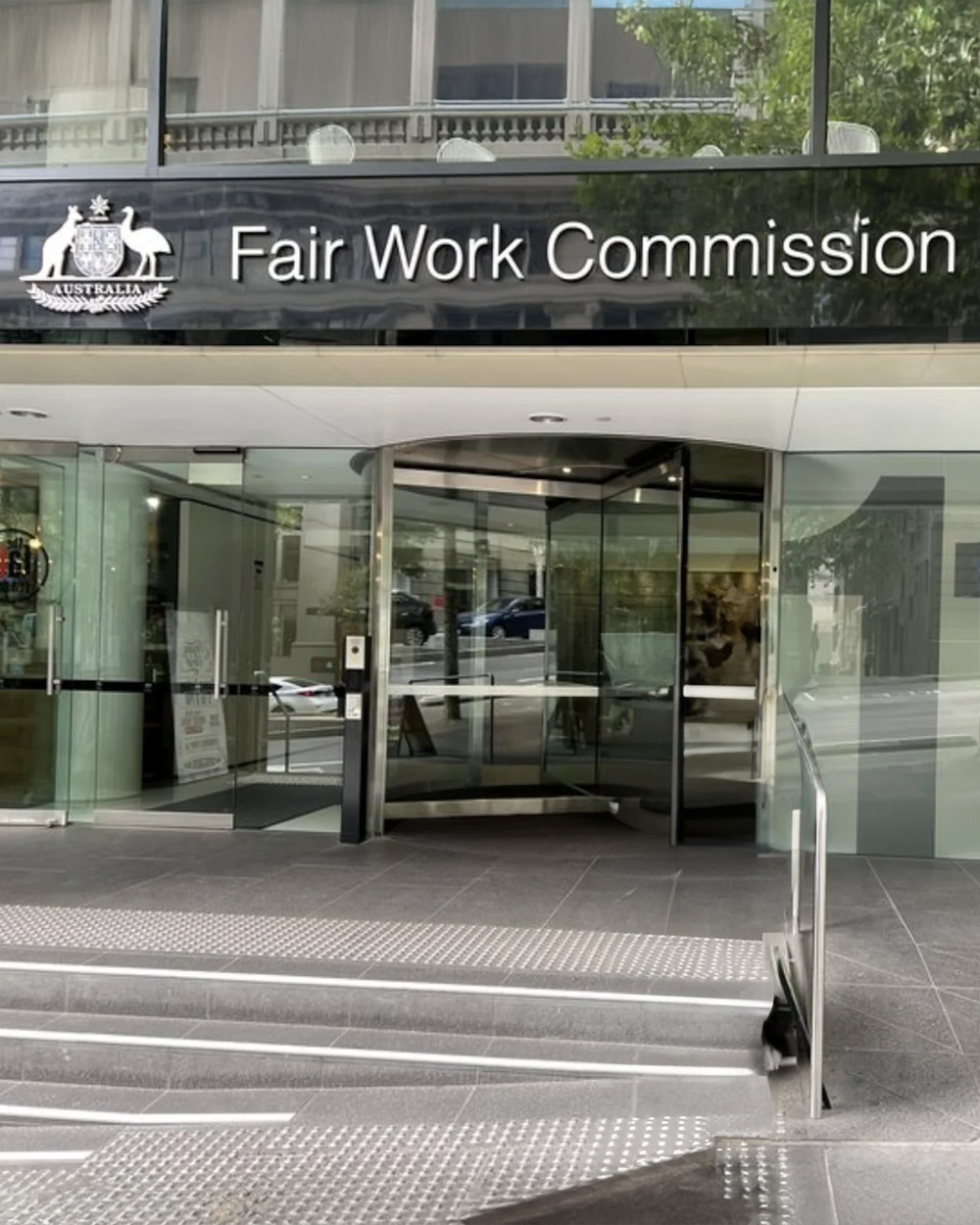Employment discrimination happens when you’re treated unfairly at work because of certain personal characteristics. In Australia, we’ve got strong laws to protect workers from discrimination, and these laws continue to evolve to provide better protections. Understanding your rights is crucial if you want to ensure fair treatment in your workplace.
At Fair Workplace Solutions, our employment discrimination lawyers understand that knowing your rights is only half the battle. With evolving protections, from gender identity safeguards to rights for domestic violence survivors, the legal landscape demands expertise tailored to your unique situation. We’re here to demystify the process, advocate fiercely on your behalf, and ensure your workplace becomes a space where fairness isn’t just promised but practiced.
You don’t have to navigate this alone. Our team combines decades of experience with a down-to-earth approach, guiding you through every step-from initial advice to tribunal representation-because everyone deserves a workplace free from discrimination.

Employment discrimination occurs when you’re treated less favourably than someone else because of a protected attribute that you have or are assumed to have. It can happen at any stage of employment – during recruitment, while you’re working, or when you’re being let go. Discrimination isn’t just about being fired or not hired; it includes any “adverse action” that disadvantages you because of your personal characteristics.
Think of it this way: if your boss denies you a promotion because you’re pregnant, that’s discrimination. If your colleagues exclude you from meetings because of your race, that’s discrimination too. These actions are not only hurtful, they’re illegal.
Australia has several laws that protect you from workplace discrimination. The main one is the Fair Work Act 2009 (FWA), which prohibits employers from taking adverse action against employees or job applicants based on protected attributes.
The Australian Human Rights Commission Act 1986 also prohibits discrimination in both public and private sector employment. Each state and territory has its own anti-discrimination laws as well. In New South Wales, the primary anti-discrimination legislation includes the Anti-Discrimination Act 1977 (NSW).
There are also separate legislation specific to types of attributes including race, disability, sex and age. It is useful to also understand the differences between unfair dismissal and unlawful termination.
These laws work together to create a framework that aims to ensure everyone gets a fair go in the workplace. If you’ve experienced discrimination, you’ve got options for taking action.
Adverse action includes a range of unfair treatments that an employer might take against you, such as:
For example, if Sally mentions during a job interview that she’s pregnant and planning to take parental leave, and the manager says something negative about how her pregnancy or taking leave could impact the business and subsequently denies her the promotion for this reason despite her qualifications, that could be discrimination.

The Fair Work Act protects you from discrimination based on numerous personal characteristics. Your employer can’t legally discriminate against you because of your:
In recent years, the list of protected attributes has expanded. Since December 2022, breastfeeding, gender identity, and intersex status have been added as protected attributes. And from December 2023, experiencing family and domestic violence has also become protected.
This means if you’re experiencing (or have experienced) family violence, your employer can’t legally discriminate against you because of this.
In Australia, the protection of attributes under anti-discrimination legislation varies by state. It is important to seek legal advice to ensure that what you believe is discrimination is discrimination in your state.
Research shows that more than one in four Australians aged 50 and over have experienced age discrimination at work.
If you’re in your 50s or 60s, you’re more likely to face this type of discrimination, with about one-third of people aged 55-59 reporting age discrimination experiences.
Sexual harassment remains a serious issue in Australian workplaces. In 2018, one in three Australian workers had experienced workplace sexual harassment in the previous five years, up from one in five in 2012 [1].
Sexual harassment can have a devastating impact on individuals and costs the Australian economy billions of dollars each year – an estimated $3.8 billion in 2018 alone [2].
Racial discrimination manifests through derogatory remarks, exclusion from opportunities, or unequal scrutiny. In one case, Nigerian factory workers endured racial slurs like “black idiot” and were subjected to harsher performance reviews than their peers [3]. Systemic issues persist, with reports showing that 38% of race-related complaints in Victoria involved workplace exclusion or harassment [4].
Direct discrimination happens when you’re treated less favourably than someone else in a similar situation because of a protected attribute. It’s usually pretty obvious.
For example, if an employer refuses to hire you because of your race and makes fun of your race during the interview or says that they don’t like hiring people of your race or national extraction, that’s direct discrimination. Similarly, if your colleagues call you names related to your ethnicity, that’s also direct discrimination.
Indirect discrimination can be trickier to spot. It happens when there’s a rule or policy that seems neutral but actually disadvantages people with certain protected attributes.
For instance, if your workplace has a policy requiring all employees to be a certain height, this might indirectly discriminate against women or people from certain cultural backgrounds who are typically shorter. Or if your company bans headwear at work, this could indirectly discriminate against people who wear religious head coverings.
The majority of our services are fixed fee with no hidden costs including consultations, contracts and some claims.
We charge on an hourly basis depends on the situation and upon your approval.
We offer a retainer option for business owners who want ongoing services with no lock in contract. This gives you peace of mind that an employment lawyer is on-call and ready to assist you whenever you need it. It will also reduce the administrative burden of bulk legal services billing.
If you’ve faced unfair treatment at work, you don’t have to navigate this alone. At Fair Workplace Solutions, we’re here to listen, advise, and fight for your rights with fair, honest, and direct legal support. Whether you’re dealing with dismissal, harassment, or systemic bias, our employment law experts will guide you every step of the way.
Don’t let discrimination define your career, let’s secure your fair future together. Book Your Free Consultation.
1800 565 975
in**@************************om.au
Unit 308/20A Lexington Dr, Bella Vista NSW 2153
We can take out of hours calls upon request.
Monday – Friday
09:00 am – 05:00 pm
Saturday & Sunday
By Appointment
Sources:
[1] – https://humanrights.gov.au/
[2] – https://www.aihw.gov.au/
[3] – https://humanrights.gov.au/